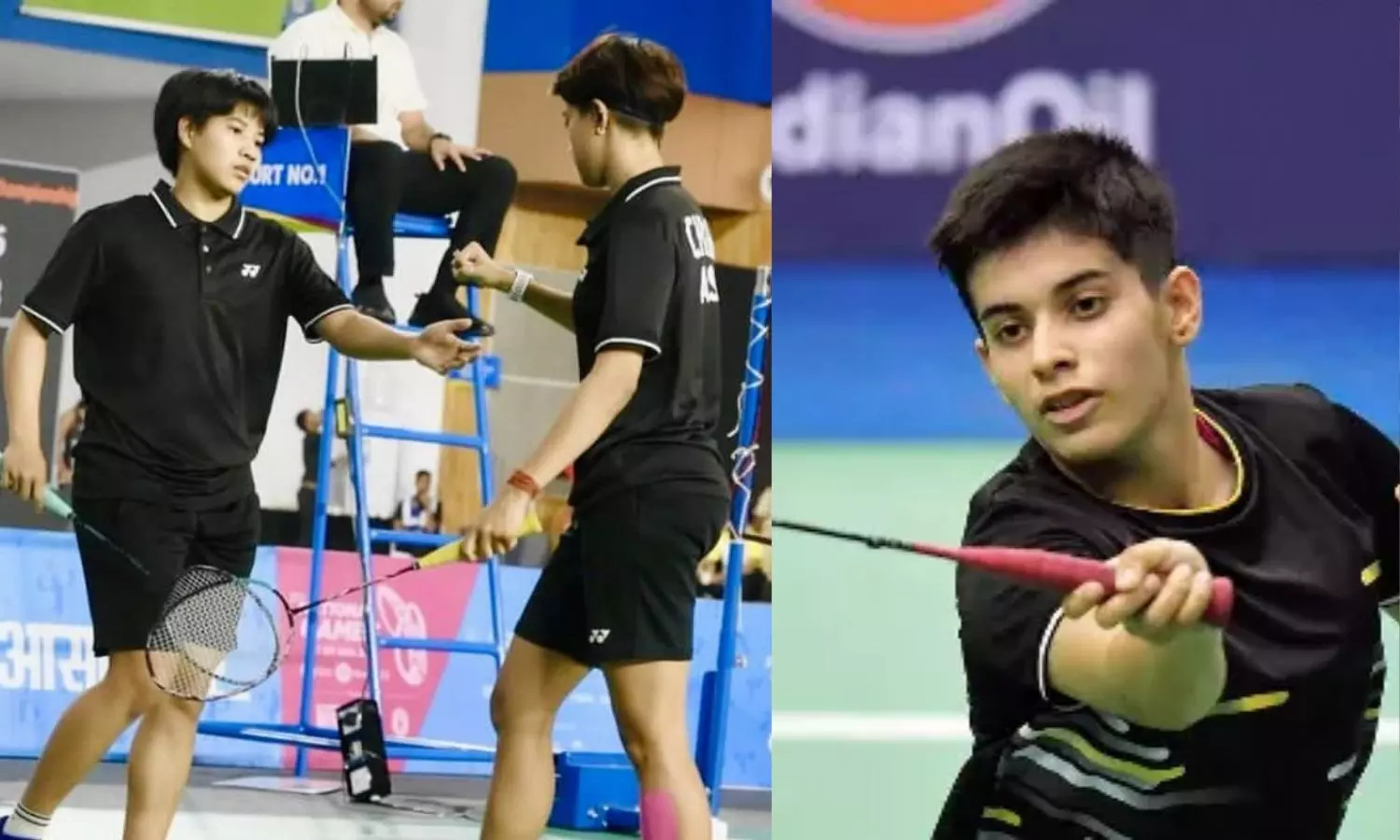Badminton
Uber Cup: Learnings aplenty despite tame exit
The young Indian Uber Cup team showed glimpses of what could be a bright future.

The young Indian team comprising of Ashmita Chaliha, Isharani Baruah and Anmol Kharb put up a commendable show at the Uber Cup 2024 (Photo credit: BWF)
India's Uber Cup campaign ended in rather tame fashion after a 0-3 quarterfinal defeat to Japan earlier today at Chengdu, China.
Despite the loss, there were glimpses of quality and determination for everyone to see.
The question now is whether they can build on this promise?
Also, 'who after Sindhu' is a thought that has repeatedly cropped up across Indian badminton circles.
In response, this young Indian Uber Cup team - to its credit - did put its hand up but the difference in quality was sadly evident.
A gutsy squad
India sent a rather young and inexperienced squad to the tournament owing to the top players having opted out to focus on their preparation for the Paris Olympics.
The team played a total of four ties in the tournament and did well to post two wins.
Their first goal was to qualify for the knockout stage and they did it by posting convincing victories over Canada and Singapore.
Thereafter, the fifteen-time champions and hosts, China, presented the first big challenge.
The Indian shuttlers, not to be overawed by the occasion, put up their best foot forward.
The occasion was also special for the youngest member of the team, Tanvi Sharma.
Debuting on a stage of this significance can get to anybody. But the young Sharma held her nerve and even troubled the two-time Asian Champion Wang Zhi Yi on some occasions.
This was evident when Yi handed the Indian teenager a memento after the match - a moment Sharma is bound to remember for a long time to come.
Near misses and Anmol's injury
The big setback going into the quarter-final was Anmol Kharb's unfortunate injury in the final group game against China.
That said, the teenager did well to lead the team in the group-stage posting commendable victories to take India through to the knock-out stage.
Similarly, Ashmita had outstanding outings despite playing against the top-ranked players.
She started the tournament on a high, upsetting Canada's Michelle Li in the first match of the tournament but sadly couldn't keep the momentum going.
Against the world no.18, Yeo Jia min of Singapore, Ashmita came back brilliantly to level the scores in the second game at 18-18 but squandered the initiative thereafter.
Similarly, she had an even better opportunity in the quarterfinal match against world no.11, Aya Ohori. Leading 8-2 in the decider, the Indian appeared in control but a string of errors meant that Ohori clawed her way back into the match, much to Ashmita's despair.
The future is bright
This young team is a testament to the fact that India has several players of international caliber waiting in the wings.
The grassroot programs are producing a healthy pipeline and with proper training and guidance, our women are only going to get better.
With greater exposure, their skills and match-tactics are bound to improve. While they now lack composure, consistency and accuracy, they're well equipped with plenty of grit.
And needless to say, they have got the tools - smashes, drops, and the works.
With time and riding on this experience of a lifetime, they are bound to be a transformed group of players in the future.
